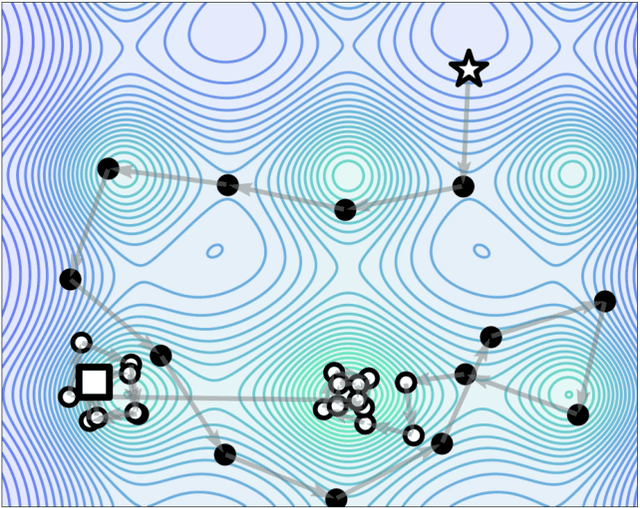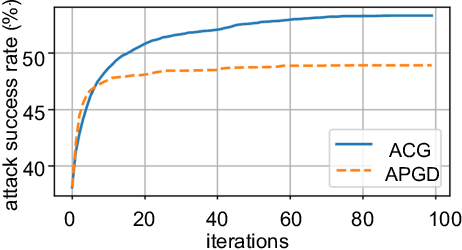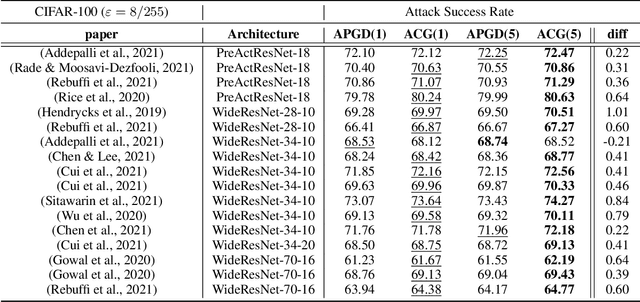Issa Oe
Enhancing Output Diversity Improves Conjugate Gradient-based Adversarial Attacks
Aug 07, 2024Abstract:Deep neural networks are vulnerable to adversarial examples, and adversarial attacks that generate adversarial examples have been studied in this context. Existing studies imply that increasing the diversity of model outputs contributes to improving the attack performance. This study focuses on the Auto Conjugate Gradient (ACG) attack, which is inspired by the conjugate gradient method and has a high diversification performance. We hypothesized that increasing the distance between two consecutive search points would enhance the output diversity. To test our hypothesis, we propose Rescaling-ACG (ReACG), which automatically modifies the two components that significantly affect the distance between two consecutive search points, including the search direction and step size. ReACG showed higher attack performance than that of ACG, and is particularly effective for ImageNet models with several classification classes. Experimental results show that the distance between two consecutive search points enhances the output diversity and may help develop new potent attacks. The code is available at \url{https://github.com/yamamura-k/ReACG}
Diversified Adversarial Attacks based on Conjugate Gradient Method
Jun 20, 2022



Abstract:Deep learning models are vulnerable to adversarial examples, and adversarial attacks used to generate such examples have attracted considerable research interest. Although existing methods based on the steepest descent have achieved high attack success rates, ill-conditioned problems occasionally reduce their performance. To address this limitation, we utilize the conjugate gradient (CG) method, which is effective for this type of problem, and propose a novel attack algorithm inspired by the CG method, named the Auto Conjugate Gradient (ACG) attack. The results of large-scale evaluation experiments conducted on the latest robust models show that, for most models, ACG was able to find more adversarial examples with fewer iterations than the existing SOTA algorithm Auto-PGD (APGD). We investigated the difference in search performance between ACG and APGD in terms of diversification and intensification, and define a measure called Diversity Index (DI) to quantify the degree of diversity. From the analysis of the diversity using this index, we show that the more diverse search of the proposed method remarkably improves its attack success rate.
 Add to Chrome
Add to Chrome Add to Firefox
Add to Firefox Add to Edge
Add to Edge